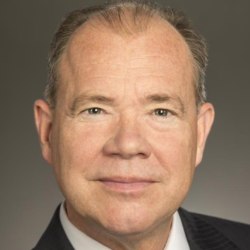California’s Public Employment Relations Board Thwarts Pension Reform
When it comes to state government, most people think of the governor and the members of the Legislature, those who are elected by the voters and do their business under the Capitol dome.
However, there is an entire class of faceless, unelected appointees to the state’s hundreds of boards and commission who determine whether or not state residents receive good services and a decent return for billions of dollars of taxpayer money.
These boards and commissions are generally tasked with oversight of various aspects of state management. However, some of these obscure agencies have proven to be nothing more than fronts for special interests.
One of the most egregious of these is the powerful Public Employment Relations Board (PERB) which is comprised of officials who behave as if they were a separate branch of California government. The members of PERB are currently taking aggressive action that could have a major negative impact on taxpayers in San Diego, San Jose, and potentially other communities.
PERB describes itself as quasi-judicial administrative agency charged with administering the collective bargaining statutes covering employees of California’s public schools, colleges, and universities, employees of the State of California, employees of California local public agencies (cities, counties and special districts), trial court employees and supervisory employees of the Los Angeles County Metropolitan Transportation Authority.
PERB is now using its tremendous clout in an effort to overturn landmark pension reform initiatives overwhelmingly approved by voters in the cities of San Diego (67%) and San Jose (70%). Board lawyers have filed complaints against the two cities claiming that public officials failed to bargain in good faith on pension issues with unions representing city employees, prior to the passage of the initiatives.
Voters in San Diego and San Jose acted proactively to avoid the fate of Vallejo, Stockton and San Bernardino, cities that have gone financially toes up because past city council members, elected with the support of government employee unions, agreed to lavish pension benefits that were unsustainable. With the future of their own cities on the line, citizens used the initiative process to approve reforms that would put pensions on an actuarially sound footing.
While the reforms approved by each community are slightly different, neither takes anything away from what employees have already earned. For public employees, having to contribute a little more to their own pensions, or to work several extra years for pension eligibility, is not a bad trade off if it means both cities will avoid bankruptcy and will be in a position to meet their future obligations to these workers.
However, Jerry Brown, who talks a good game of pension reform, is nonetheless beholden to the government employee unions for his repeat trip to the Governor’s office. Therefore, it should come as no surprise that he has used his discretion to stack the PERB with union hacks.
So now the dirty work to overturn pension reform at the local level is being done by PERB, and the governor will raise his hands, palms outward, and say, “Who me?”
With the huge public support for reasonable reform, isn’t it time for the governor and PERB to get out of the way and allow these pension changes that are fair to both employees and taxpayers to proceed?
Jon Coupal is president of the Howard Jarvis Taxpayers Association — California’s largest grass-roots taxpayer organization dedicated to the protection of Proposition 13 and the advancement of taxpayers’ rights.
